Four reasons why Scott Walker is ending his campaign and heading back to Wisconsin
- Published
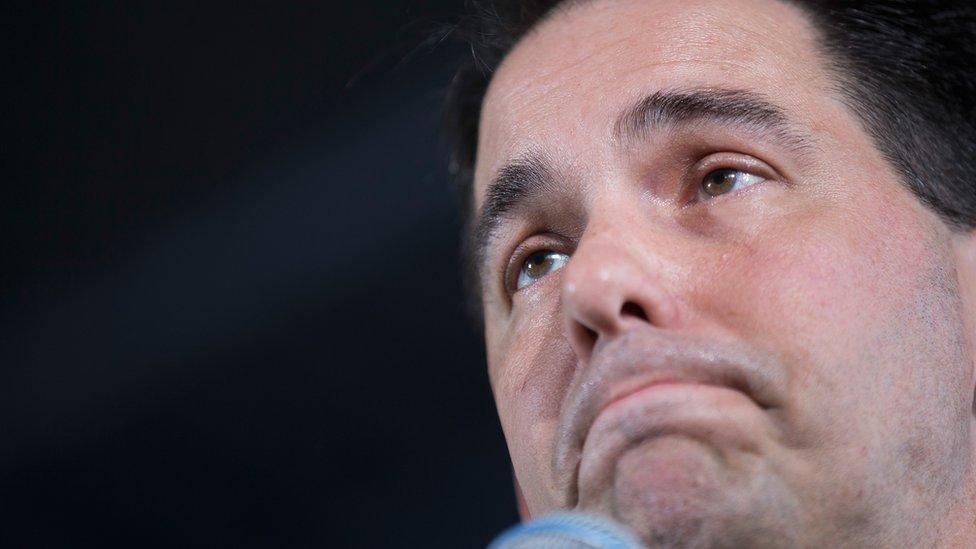
So the Scott Walker for President campaign made it all the way to autumn. Barely. It didn't even last a full baseball season.
The Wisconsin governor's withdrawal from the race on Monday is a development that would have seemed astounding just a few months ago, but it was starting to take on the air of inevitability. It was more if than when - although that "when" came a lot sooner than anyone, even this morning, would have predicted.
Campaigns that plummet as precipitously as Mr Walker's had over the past few weeks - with a showing of less than 1% in the latest national poll, external - rarely make a comeback. And when the field is as crowded as this one, those odds go from long to astronomical.
So what precipitated the candidate's demise? Here are a few possible explanations

1. The money
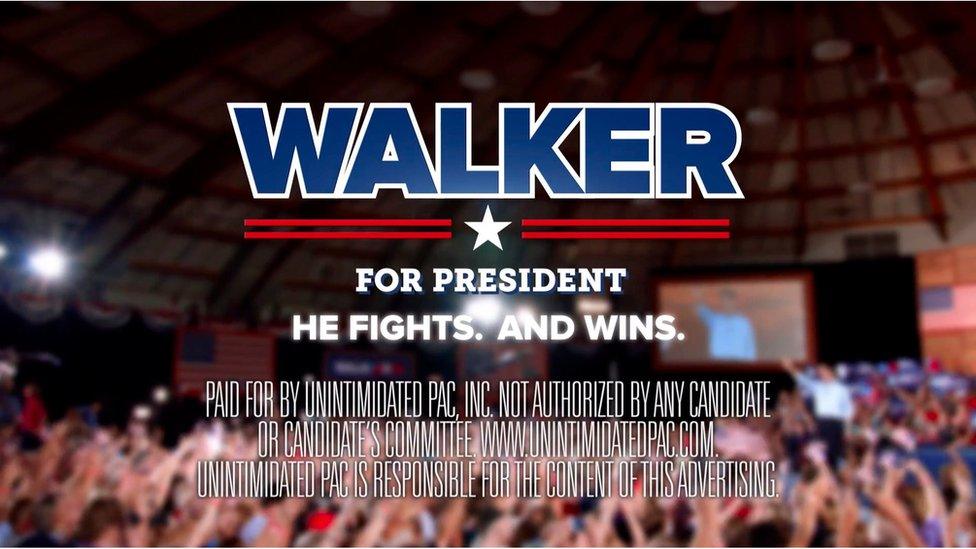
In US politics, it always starts with the money. Presidential campaigns are like giant corporations that only stay afloat as long as the profits - or in this case the donations - keep rolling in.
By last week it was clear that the Walker campaign was in trouble. One prominent contributor, Minnesota media tycoon Stanley Hubbard, was publicly stating that he was also giving money to former corporate head Carly Fiorina, Florida Senator Marco Rubio, retired neurosurgeon Ben Carson and New Jersey Governor Chris Christie.
"I'm smart enough to know there could be big changes," he told, external the Washington Post.
Although Mr Walker was riding high in the polls earlier this year, his fund-raising was never overly impressive, external. His super PAC raised $20m [£12.9m] by the end of July, putting him well behind former Florida Governor Jeb Bush ($108.5m) and Senator Ted Cruz ($38.1m).
The third quarter reporting period for direct campaign fundraising ends on 30 September and results are reported on 15 October. Chances are the numbers weren't looking good for the governor, amid reports, external that some vendors were seeing bills go unpaid by the campaign.

2. The debates
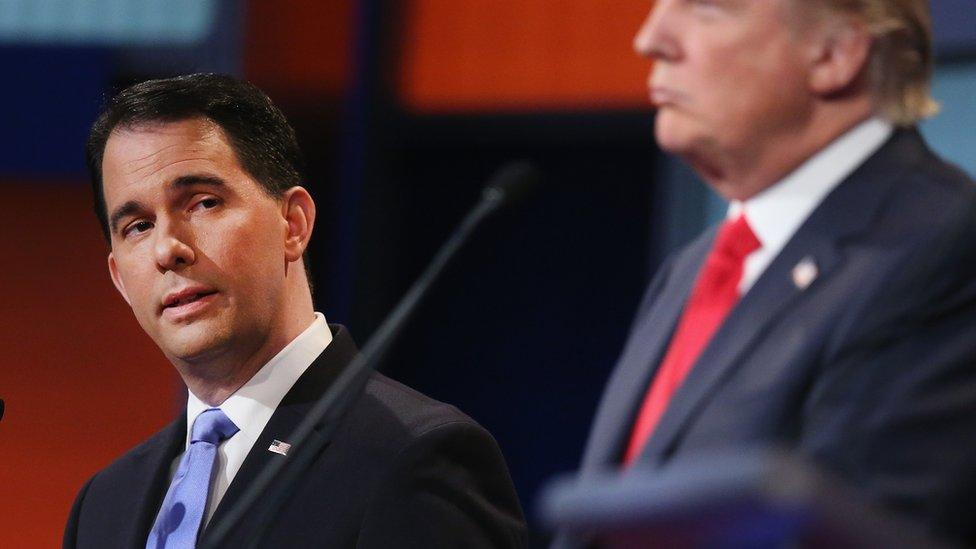
Mr Walker was overshadowed by the Donald Trump show in the first Republican debate in August and given poor marks when he did speak. As a result, he was the focus of a great deal of interest - and pressure - going into the second debate last week. Would he be more aggressive and make a better impression on the audience?
The answer was a resounding no. In the Los Angeles debate, he was once again barely a factor. He tried to sting Mr Trump with a set line about not needing another apprentice in the Oval Office, but the New York billionaire brushed him off, concentrating his fire on Mr Bush, Ms Fiorina and (curiously enough) Kentucky Senator Rand Paul.
According to post-debate analysis, Mr Walker spoke for the least amount of time of any candidate and was asked only three questions - prompting the Wisconsin governor later to criticise the moderators.
Once again, he was largely depicted as one of the debate's losers.
"The triumph of Trump over Walker is a triumph of loud over good," tweeted, external conservative syndicated columnist Ben Shapiro. "That's not Trump's fault - our politics has been that way for a long time."

3. The campaign
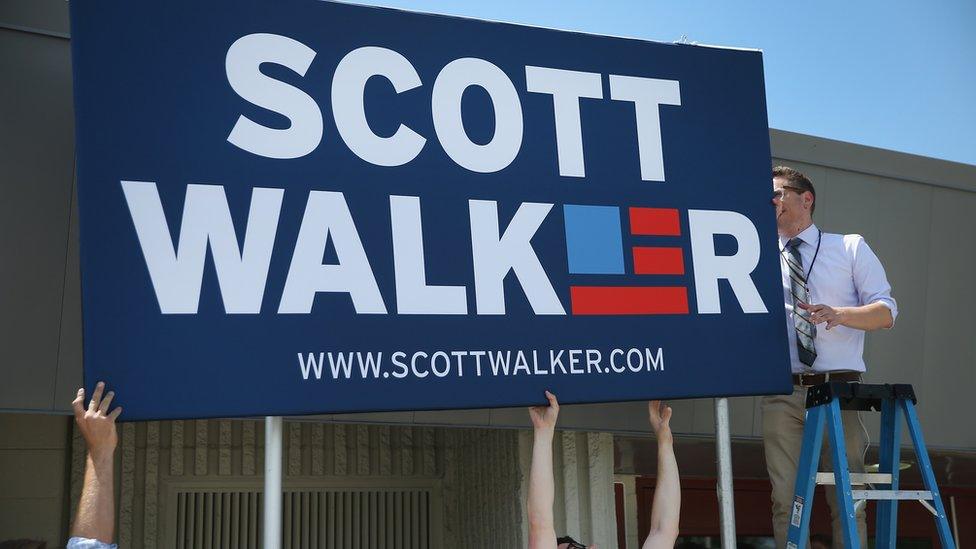
It's never a good sign when long knives come out for a campaign manager, as they had last week for Walker's top man, Rick Wiley. According to, external the Washington Post, Wiley was taking heat for expanding his campaign staff too quickly - to around 90 workers across the nation.
Shortly after news of Mr Walker's withdrawal spread on Monday, Liz Mair - a former long-time adviser to Mr Walker who was forced to resign after criticising the influence Iowa has on the political process - took to Twitter to offer her insight.
She said, external the Walker campaign erred in "hiring people who spent a lot to build out a massive operation that would not be sustainable unless financing remained amazing forever". She also noted, external that the campaign took its high standing in Iowa polls for granted and spent too much effort and money in other, later-voting states.

4. The candidate
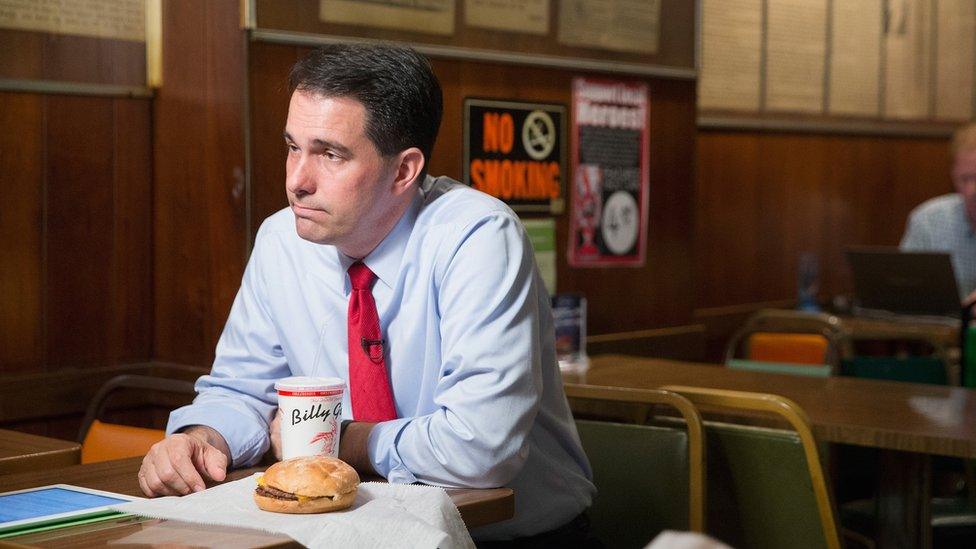
In the end, however, a campaign is about a candidate - and despite his success in three high-profile campaigns for governor, Mr Walker proved that he wasn't ready for the harsh glare of the national spotlight. Staying in control and on-message before a national audience is a daunting challenge that's certainly not unique to the Wisconsin governor.
He often made controversial statements that his campaign staff would later have to walk back, and offered muddled, sometimes contradictory, positions on high-profile issues - like immigration and corn subsidies in Iowa.
Mair said, external that Mr Walker should have spent more time preparing himself on issues outside his area of expertise and "training himself out of tics, including instinctively answering 'yes' and 'absolutely' to things".
Mr Walker is young - only 47 - so he may have an opportunity to run for president again someday, although an early exit like this one makes the success of such a prospect unlikely. Just ask former Minnesota Governor Tim Pawlenty, a 2011 drop-out who was highly touted for a time and has faded into the political background noise.
Candidates in (and out of) the Republican presidential field
